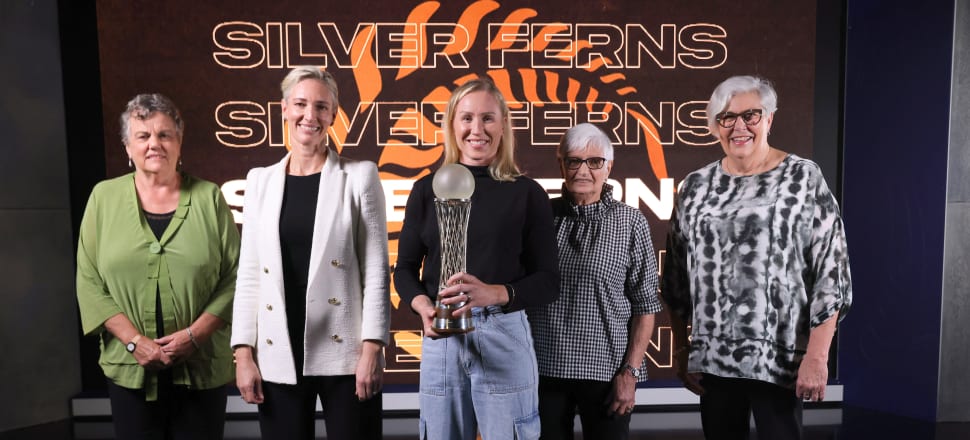
Ameliaranne Ekenasio is the 14th captain to lead the Silver Ferns at a Netball World Cup. Suzanne McFadden tracks down the rest, and speaks to those who won as skipper.
1963: Pam Barham
Tall and strong with court smarts, Otago midcourter Barham led the Silver Ferns into a new era in netball - the seven-a-side game and defending the shot - at the first World Cup in England (when it was still called basketball). Having travelled six weeks by ship, New Zealand lost the final, 37-36, to Australia.
Barham, a teacher, later moved to Australia and coached the national side in 1985 and ‘86. She died in 2001.
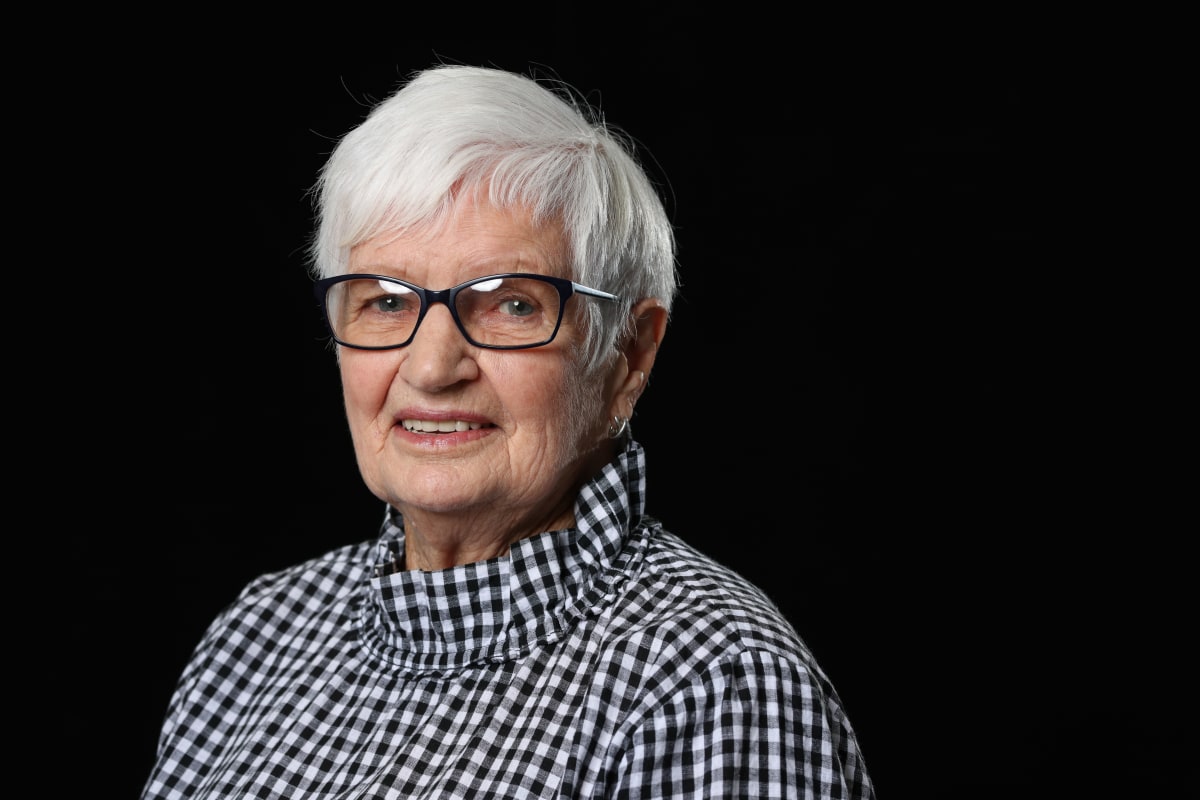
1967: Judy Blair
An elegant and bright octogenarian, Blair quickly reels off World Cup memories. Away from home for four months at the first world tournament; playing in heavy gym frocks: “We started the tournament with black stockings but by the end we wore white socks.” Accepting tipples of rum from the Jamaican players to combat the cold. “We lost to Australia by one, and we were devastated,” she says.
A petite attacker and charismatic leader, Blair had to wait another four years to be re-selected – this time as the national captain. “My first son was 20 months old when I went to Perth in 1967 – there were three mums in that team,” she says. “We played seven games and didn’t lose one. Our defence was amazing.”
Straight after securing New Zealand’s first World Cup victory, the team performed a haka. “A group of Kiwis in the stands did a haka back to us,” the 81-year-old Cantabrian says. “There was such jubilation. But there were no accolades when we came home.”
If Blair could change anything back then, it would be playing on hard courts – in unforgiving solid shoes. She’s had to have a hip replacement.
Blair coached for decades, and followed her Silver Ferns daughter, Belinda Charteris (who played at two World Cups). “It’s been a fabulous journey,” says Blair, who has eight grandchildren and a great granddaughter.
1971: Joan Harnett-Kindley
Credited with changing the public perception of netball in New Zealand, Harnett was often dubbed the ‘belle of the court'. Voted player of the tournament at the 1967 World Cup, the Canterbury shooter led the Ferns four years later in Jamaica where, still playing the round robin format, they ended up bridesmaids to Australia once more. Harnett was voted New Zealand’s ‘dream player’ of netball’s first 75 years.
Harnett-Kindley forged a career in real estate, and was a board member of New Zealand’s Real Estate Institute. Now retired, she lives in Wanaka.
1975: Shirley Langrope
A quick and inventive midcourter, Langrope (nicknamed Frog for her leap) captained the Silver Ferns at their first home World Cup in 1975. Unfortunately, the Cantabrian was injured during the tournament and could only watch as New Zealand lost to England for the first time; the Ferns ending up third.
Langrope retired straight after and focused on her career as a teacher, in Auckland then Christchurch. Now 77, she has links to the current Ferns – as a cousin of midcourter Kate Heffernan.
1979 and 1983: Lyn Gunson
Of her 11 years in the Silver Ferns, Gunson was captain for six of those – a statistic that shows her brilliance. Taking on the leadership role at 24, Gunson (then Parker) was an astute reader of the game and a perfectionist on and off the court.
That was obvious as she led the Silver Ferns to a three-way share of the 1979 Netball World Cup title with Australia and hosts Trinidad & Tobago, under the coaching of Dame Lois Muir.
“Winning is good, it’s exciting. But it’s also about all the things you have to get through, the things that build your resilience,” Gunson says.

“It was also such a watershed moment for international netball. They ended up with a situation they didn’t want – a three-way tie. They ran into trouble with the policies and rules… It caused a lot of positive change.
“There was no international calendar back then, and a lot of inequity around how women were participating in the game in different countries. That’s when New Zealand put together the international Milo Series with the realisation if they were going to participate fully internationally, they had to do something.”
Gunson competed in one more Netball World Cup in Singapore in 1983, where a two-goal loss to Australia consigned the Silver Ferns again to runners-up.
“We’d been in England and the two Margies [shooters Margaret Forsyth and Marghie Matenga] were both injured, so our base side wasn’t quite there. Against Australia, in the first quarter, only six of our goals went in and that put us on the backfoot,” says Gunson, who had her own injury problems – in hospital for the two days before the tournament after a table fell on her achilles tendon.
Gunson went on to a successful three-year tenure as Silver Ferns coach, when they won 45 of 49 tests. She then went on to coach England at the 2003 World Cup.
A secondary school teacher and sports director, she’s now at High Performance Sport New Zealand, where she’s been instrumental in setting up coaching programmes. She’s returned home to Northland, living at Marsden Cove, near her mum.
1987: Leigh Gibbs
Forty-four years after her first World Cup, Gibbs keeps getting drawn back for more. She's been to netball's pinnacle event three times as a player, twice as a coach and now she's headed to Cape Town as a member of World Netball’s coaching advisory panel.
“Each World Cup has been unique and special," says the outstanding wing defence, captain for two years of her nine seasons with the Ferns. "At my first in 1979, we stayed in the Hilton Hotel in Port of Spain and played in a brand new outdoor stadium. The three-way tie was unique,” the says. “In Singapore in 1983, the facilities were different, it was blimmin’ hot and losing was a real disappointment.”
But like most world champion Silver Ferns, the loss was a huge motivation to turn that around four years later. “In ’87 we just knew what we needed to do. We had clarity and great leadership from Lois [Muir]. So as a player, our victory in Glasgow was the icing on the cake.”
It was arguably the best Silver Ferns line-up in history – and no team came within 10 goals of them in Glasgow.
During Gibbs' tenure as Silver Ferns coach, she took them to bronze at the 1995 World Cup, then gold as assistant coach to Ruth Aitken at the 2003 tournament.
Gibbs is still heavily involved in netball. Having coached in Wales and Australia, she’s now living in Nelson and working as the community netball manager at Netball NZ, looking to grow capability and capacity in coaching.
Her sons have a link to netball too – Pera is the strength and conditioning coach at the Mystics, and Maia, a tā moko artist, helped design the Silver Ferns dress, Manawa Rau, for this campaign.
1991: Wai Taumaunu
The formidable defender who began her Silver Ferns career on attack, Taumaunu played at three World Cups. A natural leader, she guided New Zealand into battle in Sydney in her last international outing in 1991 – where they again lost to Australia by a single goal in the final.
Taumaunu’s leadership skills led her to coaching – first becoming England’s assistant coach at the 2003 World Cup, then coaching the Silver Ferns for 53 tests, including the 2015 World Cup. Away from the court, she’s been heavily involved in governance roles and is now the high performance director for Netball Central Zone and a defensive coach for the Pulse. Her daughter, shooter Tiana Metuarau, is a travelling reserve in this Ferns campaign.
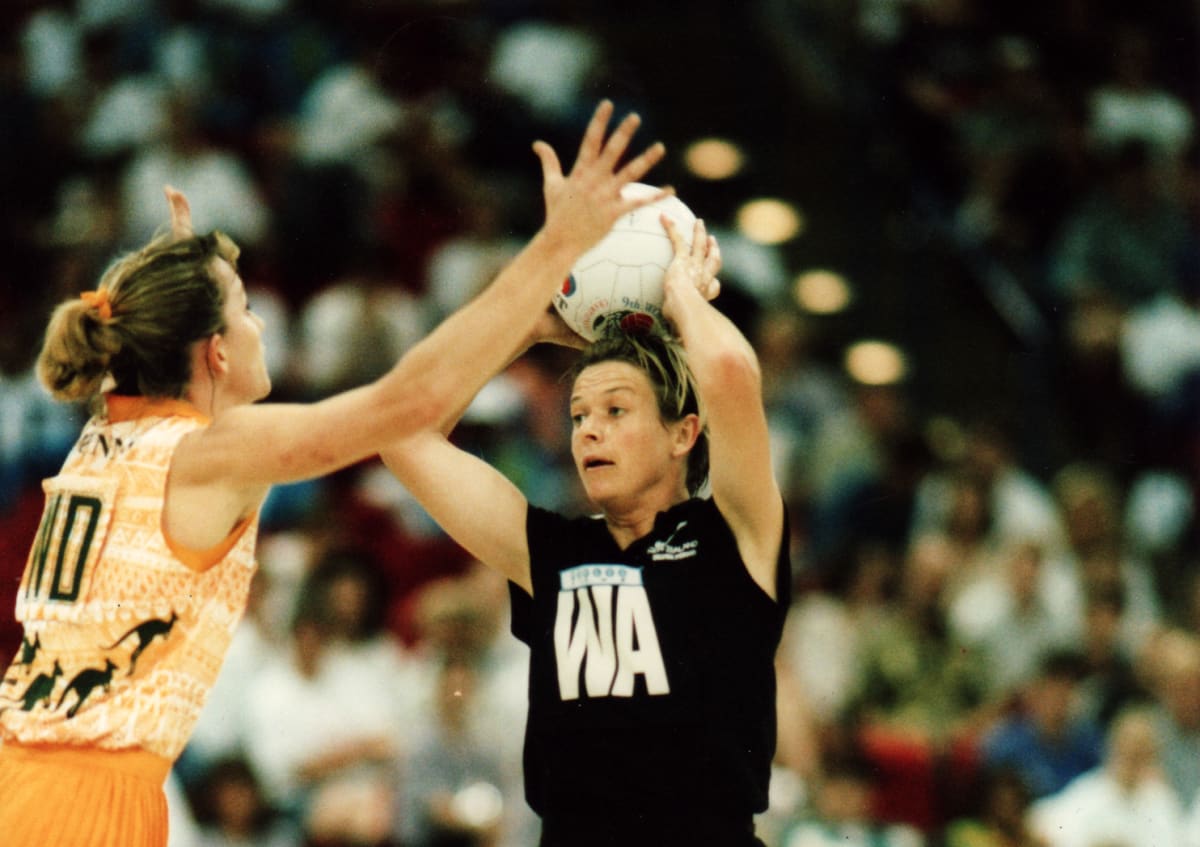
1995: Sandra Edge
The girl from Te Puia Springs had a brilliant Silver Ferns career – lured back from retirement twice, playing 75 caps and at three World Cups. She was captain for 21 tests, including the 1995 World Cup in Birmingham, where the Ferns had a disheartening campaign, suffering a shock loss to Irene van Dyk’s South African side before settling for bronze.
Edge has been a dental nurse, bank officer and teacher, as well as a mum of two sons. She’s never been far from the netball court, working at Netball Central Zone, as a Pulse assistant coach and in age-group coaching. She’s now developing future stars for Netball Wellington.
1999: Belinda Colling
Gutsy, savvy and unflappable, Colling had a meteoric rise in the Silver Ferns, becoming captain in only her second season. The Otago shooter captained the Ferns at the 1999 World Cup in Christchurch, with huge public expectations to win. But when they lost the final to Australia - with the last shot on the stroke of fulltime - Colling shouldered the blame. She got her revenge four years later, before ending her decade in the black dress.
A basketball Olympian, Colling has done netball commentary and coaching, and worked in personal development for Otago Rugby. A mother of four, she lives on a farm in Ranfurly, chairs the local school board and is an ambulance driver.
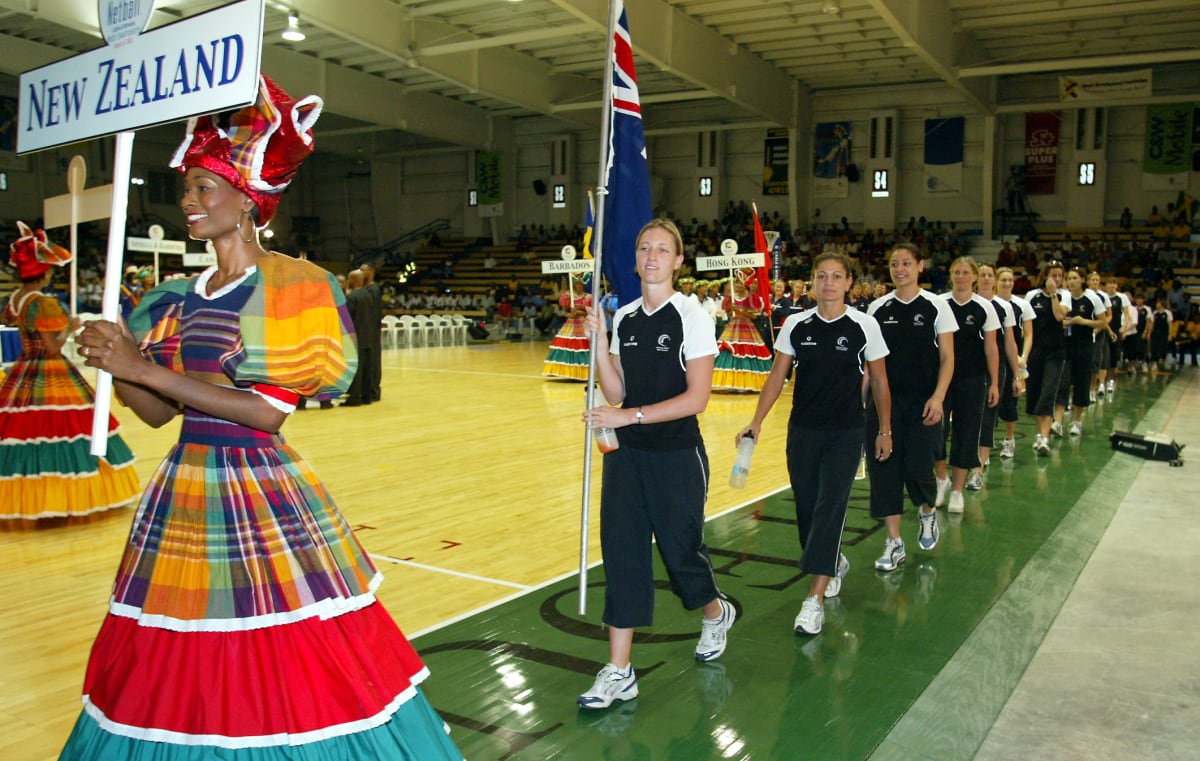
2003: Anna Stanley
Any time you ask Stanley what she remembers most about the Silver Ferns breaking a 16-year drought to bring home the World Cup in Jamaica in 2003, her mind darts straight to Bubby.
That’s Temepara George, the pocket rocket midcourter sent off, for two centre passes, in the final against Australia - which could have been breaking point for the Ferns.
“But there was no panic. I looked at the bench and [shooter] Tania Dalton was sorting out the bibs ready for the changes on court. Everyone played their role. We’d prepared for so many what-if situations,” Stanley, who featured in three World Cups, says.
“There was also a sense of we’re not going to lose this. We knew it was our time. There was a real sense of belief and a real shift in mindset from previous World Cup campaigns, because we had to lose so many to know how to win one. In Jamaica we wouldn’t let that happen again.” They beat Australia 49-47 in the final; a Vilimaina Davu intercept sealed the win.
Stanley had a remarkable 100 percent success record during her 19 tests as Silver Ferns captain; she rebounded from a serious knee injury to help the Ferns win their first Commonwealth Games gold in 2006.
For the last 15 years, Stanley has been commentating for Sky; she’ll be in Cape Town later this month. A mum of three teens, she also works at St Cuthberts College in Auckland, running their athlete pathway programme, bring through that next generation across all sporting codes.
2007: Adine Wilson
Athletic, hard-working and quick-thinking, Wilson was another Silver Fern who starred in three World Cups. The Taranaki midcourter captained New Zealand for two years – leading them to 2006 Commonwealth gold and World Cup silver at home in Auckland the following year, when the Ferns dipped out in the final to Australia, 42-38.
Auckland-based Wilson, mum to two teenage sons, is about to return to part-time work as a lawyer. She’s also been on a number of netball boards and is a key commentator and anchor in Sky’s netball coverage.
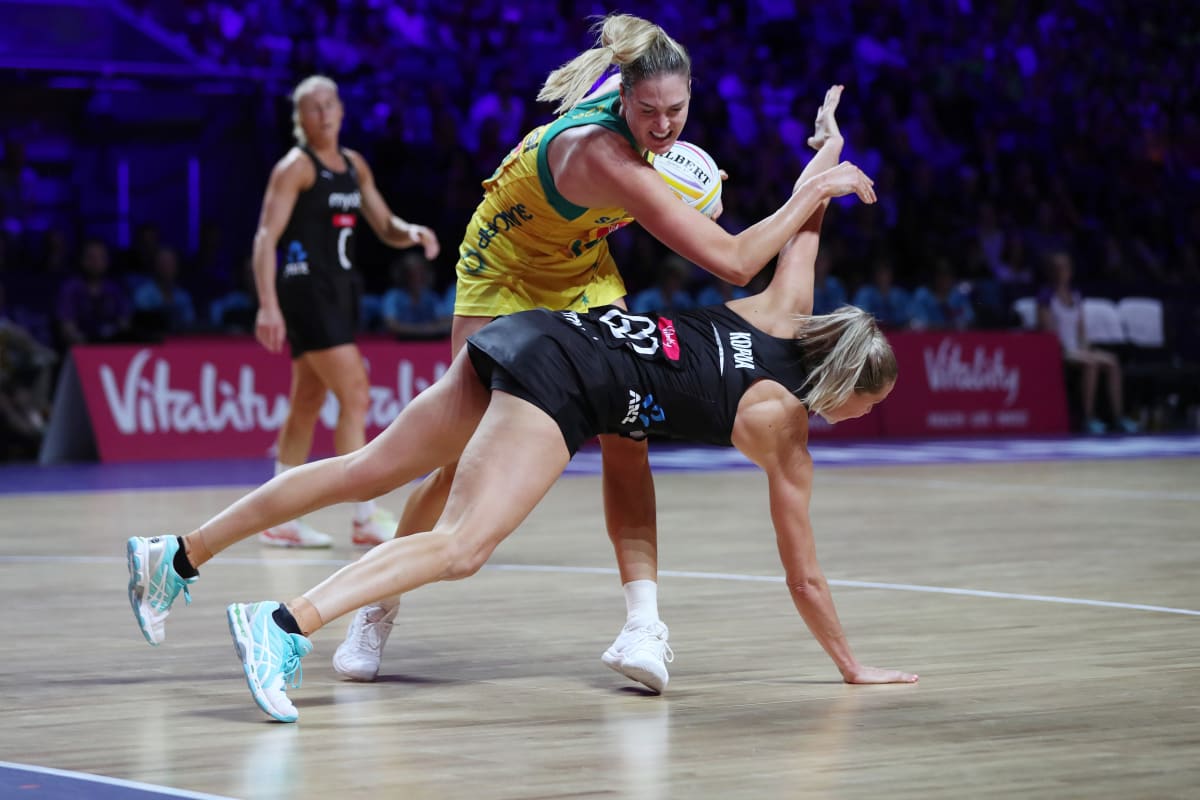
2011-2015: Casey Kopua
Kopua holds the record of New Zealand’s most-capped skipper, with 77 tests wearing the armband. She also played at a phenomenal four World Cups – captain at the two tournaments in the middle.
The final of the 2011 World Cup in Singapore broke Kiwi hearts when Australia won the first-ever extra-time thriller, 58-57. In 2015, in the same final match-up, the Diamonds held off a fast-closing Ferns side, 58-55. After having her first child, Kopua decided to return from retirement for a last shot at World Cup victory in 2019, and was rewarded.
Now with three children and still living in the Waikato, Kopua has also helped the Magic as a specialist defence coach.
2019: Laura Langman
Some of Langman’s favourite memories from her four World Cups were from the losses. “In 2015, we lost our marbles in the first quarter of the final against Australia, but we called a time out and Wai [coach Wai Taumaunu] calmly walked over and said: ‘Everyone take a breath, and play how you play’. We won the next three quarters but it wasn’t enough,” Langman recalls.
Having returned from 18 months in netball’s wilderness, Langman was made Ferns captain in 2018. New Zealand’s most capped player in history (163 tests) says the World Cup in Liverpool remains “a bit of a blur”.
“On a personal level I was more worried whether could I still crack it. Playing five days on the trot, and I wasn’t confident in my ability to back it up at that point,” she says, one of the four “fossils” in the Ferns line-up. “I remember getting through the pool play and thinking, now this is where the work starts.”

The dazzling midcourter pulled it off, breaking another 16-year streak without the trophy with their 52-51 final win over the Diamonds.
“The whole campaign was real smart – we honed in and focused on what everybody had. And what we didn’t, we didn’t worry about. That’s something I’ve really taken into anything that I do with kids now, I always ask them what they’re good at.”
Today, Langman “tumbleweeds along” – living on the Sunshine Coast, working as an accountant, and coaching the USC Spartans netball side. She came home to work with the Silver Ferns this month in their World Cup quest.
* The Silver Ferns begin their defence of the Netball World Cup in Cape Town on Friday, July 28, against Trinidad and Tobago. All games live on Sky.







